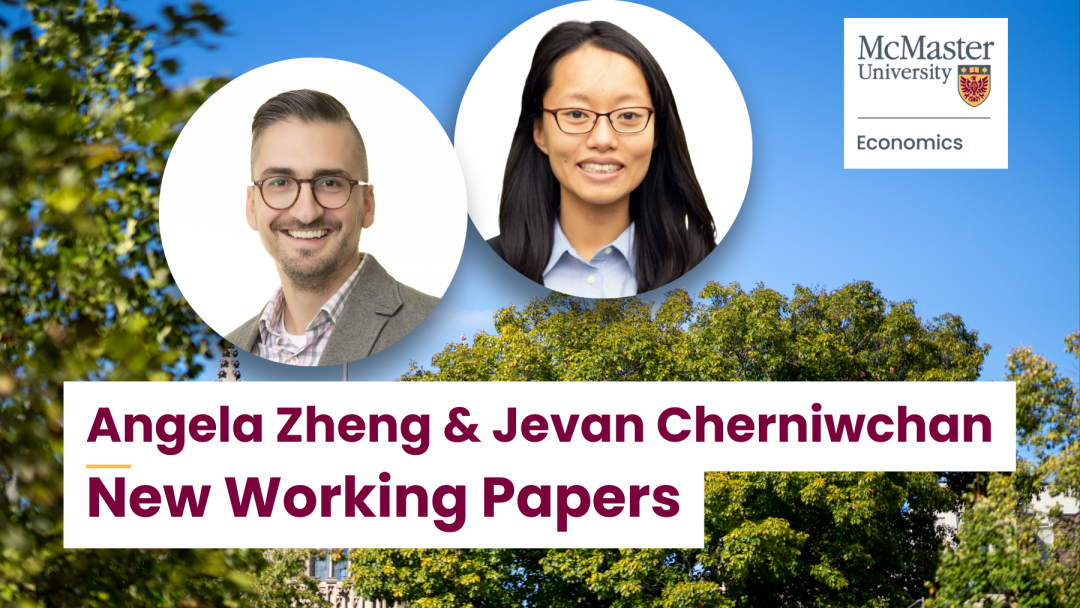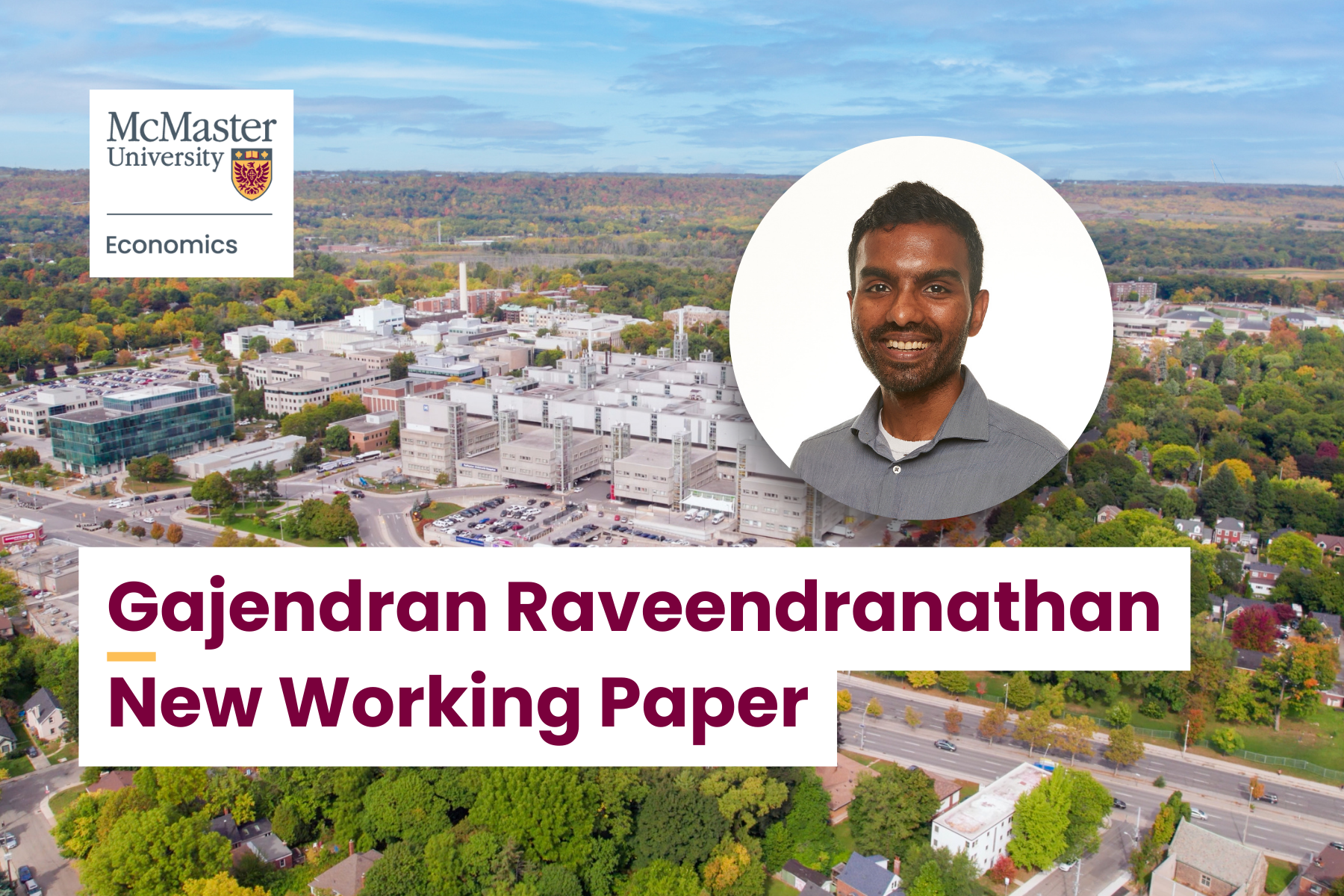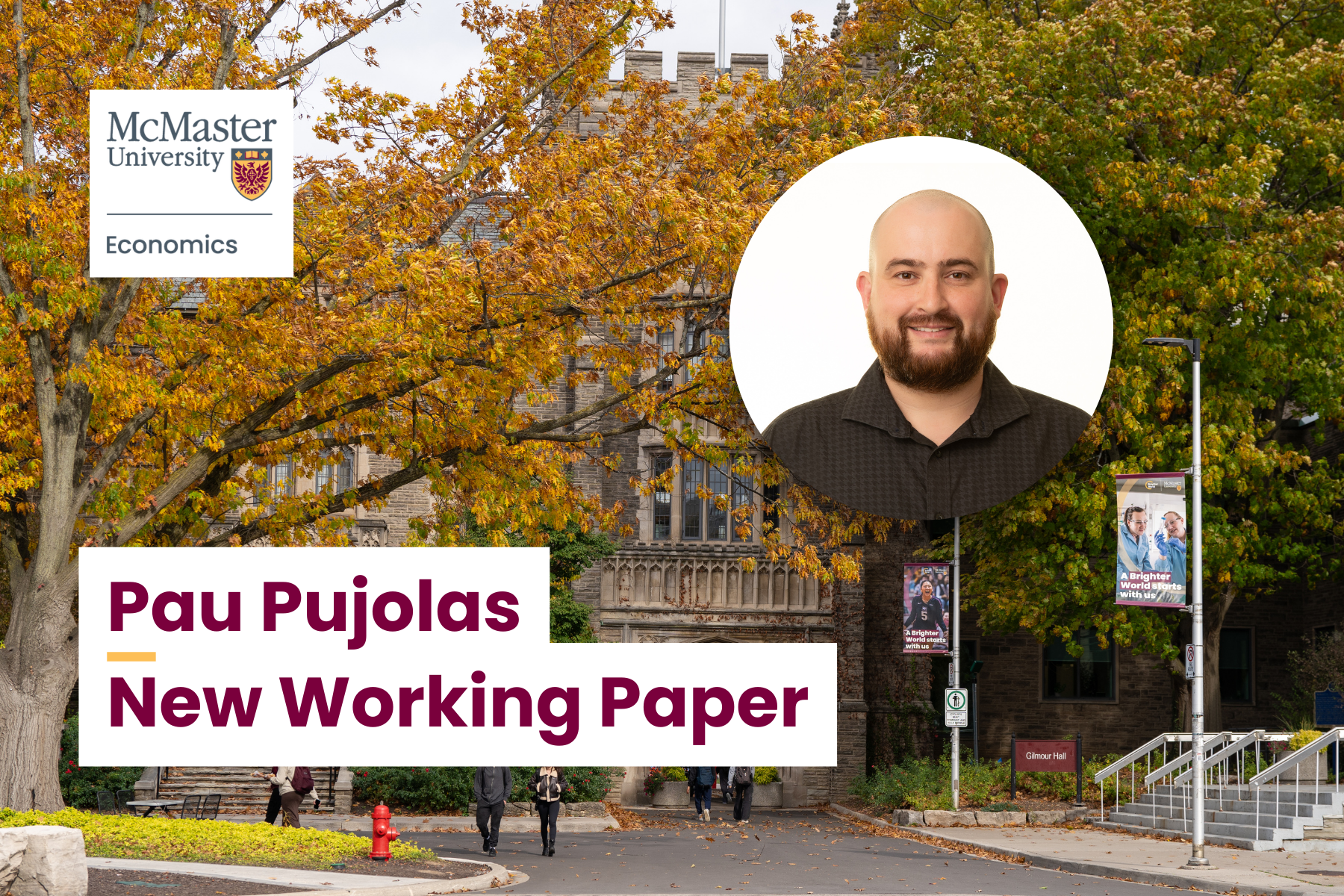Two New Department Working Papers: Angela Zheng & Jevan Cherniwchan

We have two new working papers from Angela Zheng and Jevan Cherniwchan!
From Preschool to College: The Impact of Education Policies over the Lifecycle
Angela Zheng is an Assistant Professor for the Department of Economics. Her research interests is in labour economics with a focus on education, housing and inequality. Her working paper is titled, “From Preschool to College: The Impact of Education Policies over the Lifecycle”, with Jacob Wright.
Abstract
Across all education levels, policymakers are using the re-sorting of students to diversify the socioeconomic composition of student bodies. We study how these integration policies interact, using a heterogeneous agent overlapping generations model featuring multiple periods of human capital development. Households sort into public schools through housing location, and into college via a competitive admissions process. Quality of schools and colleges are endogenous through peer effects. At the public school level, we simulate an integration policy that randomly shifts students across schools. For college, we consider an income-based affirmative action policy. Public school integration weakens the link between residential location and school quality, increasing intergenerational mobility by 2.5%. On the other hand, the college policy decreases intergenerational mobility by 0.7%: when the high-quality college reserves seats for low-income students, it makes college more competitive, which increases sorting at the public school level. In fact, an integration policy that combines public school re-sorting and college affirmative action leads to minimal changes in upwards mobility.
Geography and the Technique Effect: Evidence from Canada
Jevan Cherniwchan is an Associate Professor for the Department of Economics. His research interests span international trade and environmental economics. His working paper is titled, “Geography and the Technique Effect: Evidence from Canada” with Kevin Andrew, Mamoon Kader and Hashmat Khan.
Abstract
The technique effect – the reduction in aggregate pollution emissions due to reductions in the pollution intensity of individual industries – is often interpreted as evidence that countries are getting cleaner because of improvements in how goods and services are produced. We extend the standard decomposition used in previous research to show the technique effect may also capture changes in the geography of economic activity. An empirical application to Canada suggests such changes may be economically important. While the technique effect decreased aggregate Canadian pollution intensity by 18.0% between 2009-2021, if the pollution intensity of production had remained fixed, within-industry shifts in production across Canada would have increased aggregate pollution intensity by over 11%. The technique effect decreased Canadian pollution intensity because these within-industry shifts were accompanied by reductions in pollution intensity that were greatest in provinces that received the largest within-industry reallocation of economic activity.
Departmental News, New Working PaperRelated News
News Listing

New Department Working Paper: Gajendran Raveendranathan
Departmental News, New Working Paper
2 days ago


